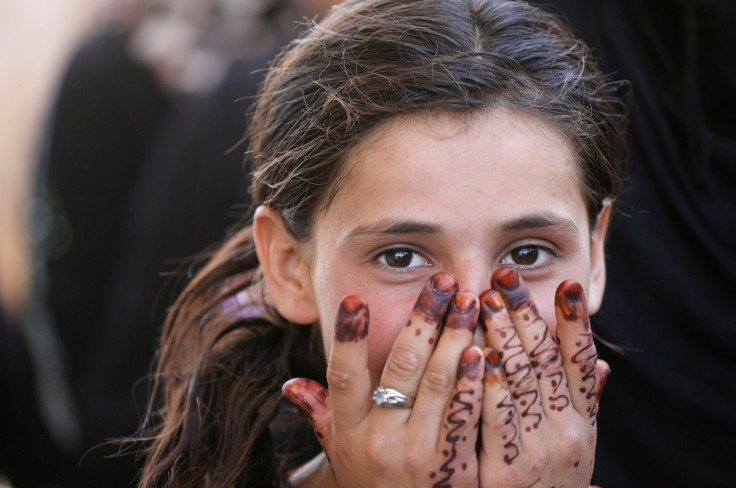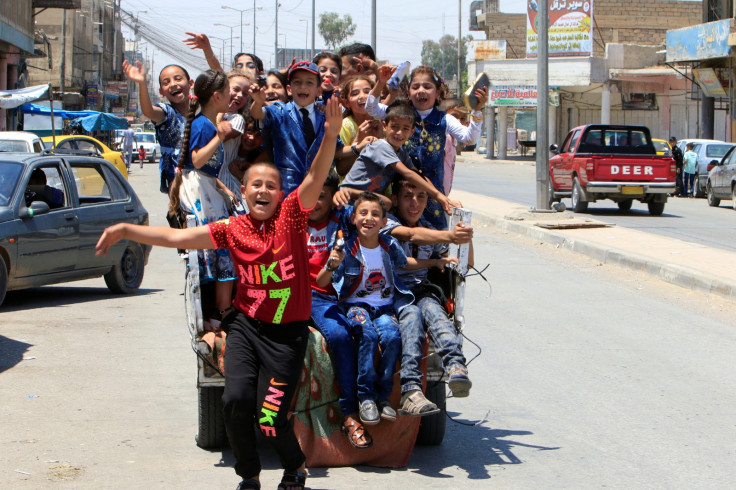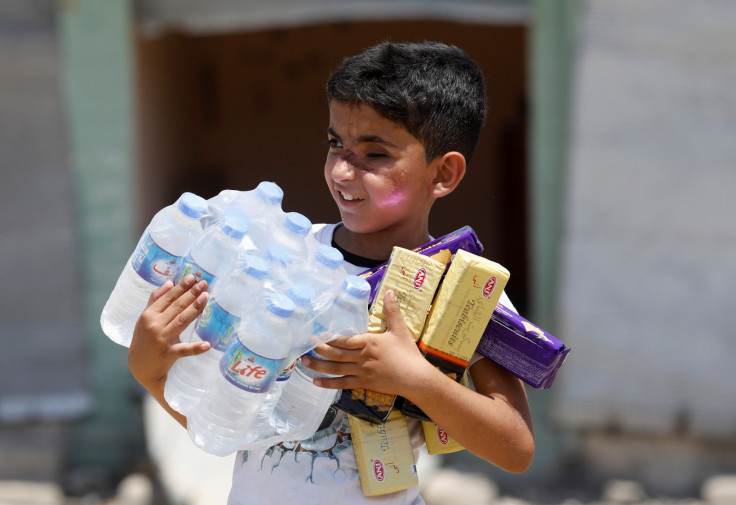Mosul celebrates Eid with football, cigarettes and a fair after liberation from Isis
End of Ramadan in liberated Mosul was joyous after three years of Isis rule.
As Iraqi forces and Isis battled it out for the last few alleyways of the old city beside the Euphrates, in other parts of the bludgeoned city Eid al Fitr - the end of the Ramadan - was being celebrated by thousands, on what was a very special day.
Eid al Fitr 2017 in Mosul will be remembered as a day of freedom for the tormented population, the first after three years of despotic rule by Isis (Islamic State).
Eid prayers were allowed under Islamic State but festivities were not.
Happy children enjoyed themselves of fun fare rides while their fathers and brothers enjoyed cigarettes and football - banned on pain of death by Isis' extreme theology - in traditional shisha bars.
Isis seized Mosul in the summer of 2014, and imposed a strict interpretation of Islam throughout the occupied territories. Civilians who did not abide by the group's strict rules were subjected to lashing at the very least, but also beheading and lapidation.
Under Isis rule,internet and mobile phones were banned and the simple act of listening to music, smoking a cigarette or a water pipe could cost someone their life. Women were forced to cover their bodies and faces and religious minorities were harshly persecuted.
People found guilty of adultery or those suspected of being homosexual were thrown from buildings and female adulterers were stoned to death. These executions were carried out in public to intimidate people.
Those caught stealing in the besieged town - where food and fuel supplies depleted soon after the siege began – had their hands amputated.
The militants extreme version of Islam which associated toys with a face, like dolls, with idolatry. They encouraged youngsters to train on weapons and changed text books to reflect their military ideology. Children were asked to add up bombs or bullets in math exercises.
Battle for Mosul
The Iraqi army, the Kurdistan Regional government and a US-led coalition are involved in what is known as the 'Battle for Mosul', a joint military offensive that began in October 2016 and aims to retake control of the besieged town.
The army recaptured eastern Mosul in January and is now fighting to retake control of the western part of the city.
Earlier in June, reports claimed Isis blew up an iconic mosque in Mosul where the group declared its 'Caliphate' in 2014 in what some analysts believe was a move to avoid humiliation, as troops continued to advance.
The UN has said that at least 750,000 people have fled since operations to recapture Mosul began.
The organisation said earlier in May another 200,000 people could be displaced by the conflict as military operations moved closer to Mosul's Old City.




© Copyright IBTimes 2024. All rights reserved.






